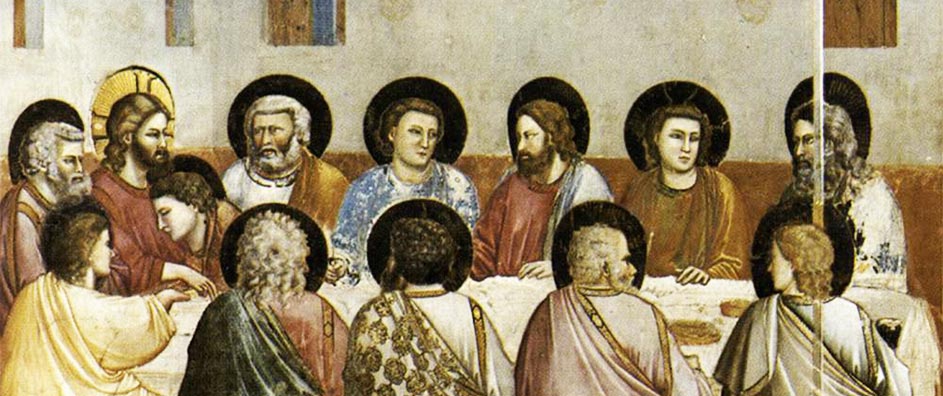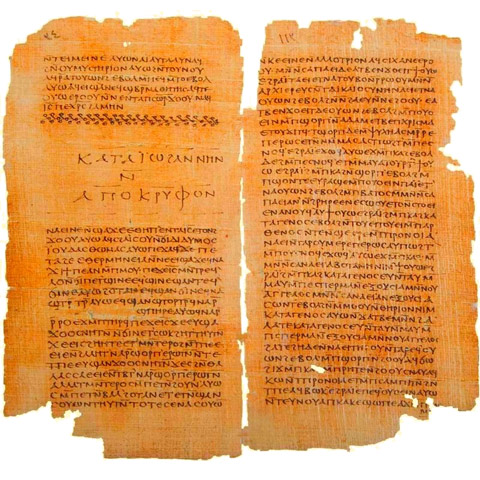The views expressed in our content reflect individual perspectives and do not represent the authoritative views of the Baha'i Faith.
I became a Baha’i at 22. But my spiritual awakening first took place when I was 15. Here’s what happened:
In 1969, on the radio, I heard a news story about a new Gospel, discovered in 1945. The original Coptic text was first published in 1956, and the first English translation published on January 1, 1959, in this remarkable book:
The Gospel According to Thomas: Coptic Text Established and Translated by Antoine Guillaumont (Translator) , Henri Charles Puech (Translator), Gilles Quispel (Translator) , W. Till (Translator) , Yassah Abd al-Masih (Translator). Leiden: Brill; London: Collins; New York: Harper, 1959.
I was so intrigued by news of this discovery that I begged my dear mother, the late Sandra Kay Buck, to get me a copy.
Since she was a devout Christian, my mother was only too happy to oblige. For it’s not often that a hormone-harrowed male adolescent turns his thoughts from the mundane to the sublime. So she special-ordered the Gospel of Thomas at a local bookstore. Then the day came when the book that I so longed to read finally arrived.
This slender volume (62 pages, Coptic text and English translation, on facing pages) contained 114 sayings of Jesus. Each “logion” (Greek for “saying”) was prefaced by the formula, “Jesus said”.
No biography. No miracles. No crucifixion. No resurrection. No apocalypse. Only the sayings of Jesus — but so profound!
It was as though someone had recorded the original “Sermon on the Mount” (Matthew 5–7) or the “Sermon on the Plain” (Luke 6:17–49).
What I experienced when first reading this remarkable work, was a bit like how Dutch scholar, Gilles Quispel, who discovered the Gospel of Thomas, felt, as he later recounted in 2004:
It is hot today in Cairo. The temperature is bearable during the day, but at night the wind carries the heat from the desert into the city. My French colleagues have gone to a restaurant to sample the delights of the Arabic cuisine. I am alone in my room at the hotel. Before me on the table, under a reading lamp, a copy of a Coptic text which I am trying to decipher. Only to think that I am the first person after so many centuries to read this! Slowly the meaning of the words dawns upon me. They are short sentences. And they all begin with the words: Jesus says. And in my mind there is that constant thought: did he really say this?
In Sunday school, when I was a kid, I learned that the shortest verse in the Bible is this: “Jesus wept.” (John 11:35, King James Version.) Imagine how astonished I was by this equally short saying:
Jesus said: “Become passers-by.” (Logion 42.)
When I read this two-word verse, I wept.
Widely acclaimed as the “Fifth Gospel,” the Gospel of Thomas mystified me. It held me in spiritual suspense. How deeply struck I was by sayings like this:
Blessed is the lion which the man eats and the lion will become man; and cursed is the man whom the lion eats and the lion will become man. (Logion 7.)
In 1907, Abdu’l-Baha was reported to have said:
The fifth Gospel which is considered non-canonical gave other history of Jesus than is contained in the Gospels of the New Testament. There were fifty gospels, but only four were accepted as genuine by the priesthood. – Ten Day in the Light Of Akka
Seven years later, I was introduced to the Baha’i Faith. The first Baha’i book that I ever read was The Hidden Words by Baha’u’llah. Like the Gospel of Thomas, The Hidden Words consisted of pithy aphorisms, pearls of wisdom, jewels of insight, straight from the Prophet of God himself. Here’s one example:
O SON OF BEING! Busy not thyself with this world, for with fire We test the gold, and with gold We test Our servants. – Baha’u’llah, The Hidden Words. p. 16.
When I read this, I heard the same “voice” of divine authority that I had recognized in the Bible and the Gospel of Thomas. I also understood for the first time, what Jesus meant when he said: “Become passers-by.” Jesus meant detachment from this earthly world, this transient abode. He meant what Baha’u’llah reiterated, “Busy not thyself with this world…”
So, in a way, my spiritual awakening in reading the Gospel of Thomas, at age 15, led directly to my becoming a Baha’i at age 22. When I first read The Hidden Words of Baha’u’llah, I recognized, in a flash of light in the depths of my soul, the same divine “voice” I heard in the Gospel of Thomas.
©2014 by Christopher Buck.

















Comments
Sign in or create an account
Continue with Googleor